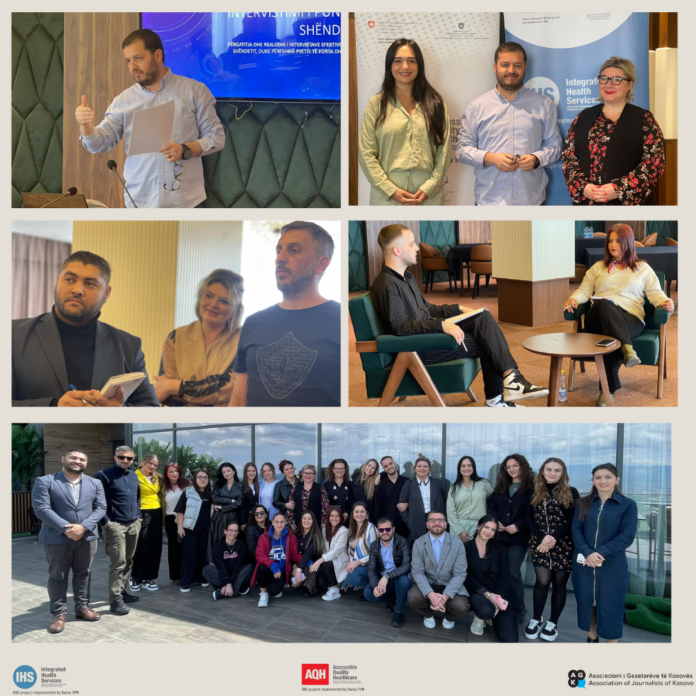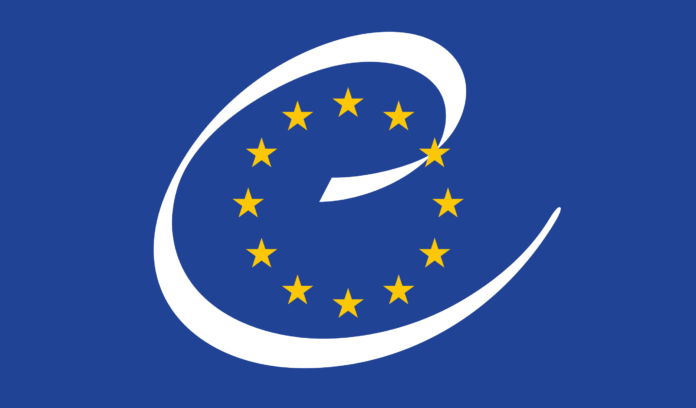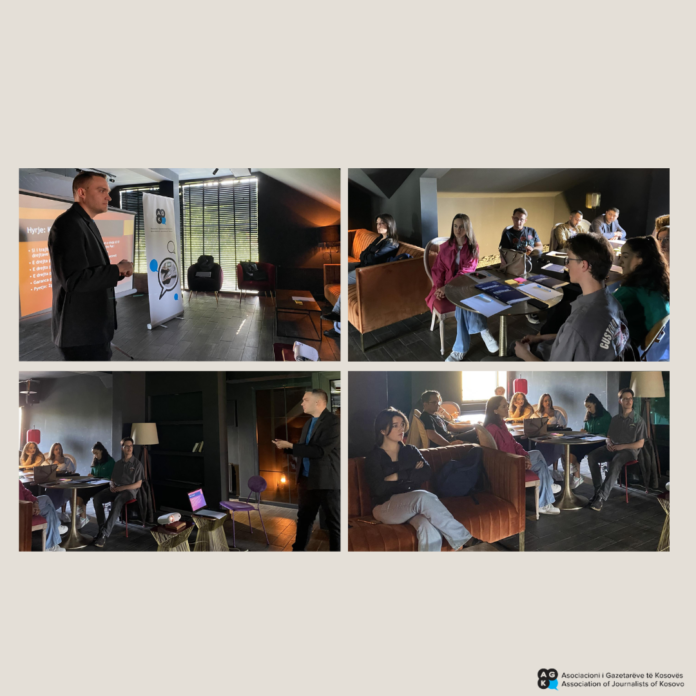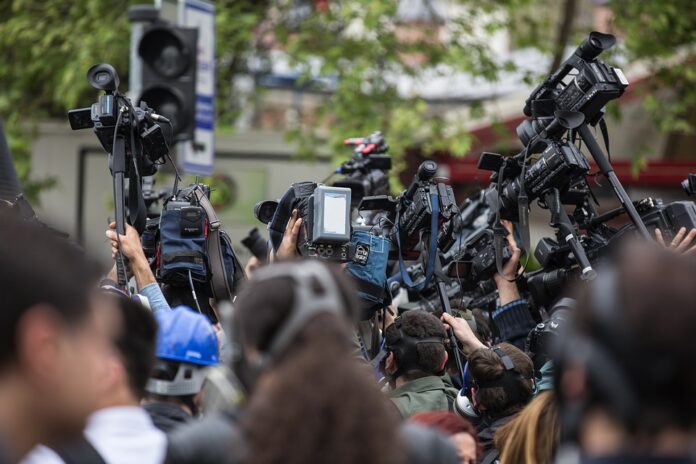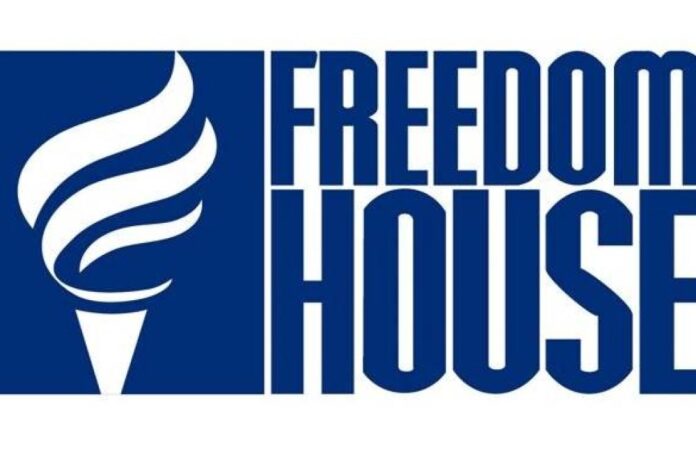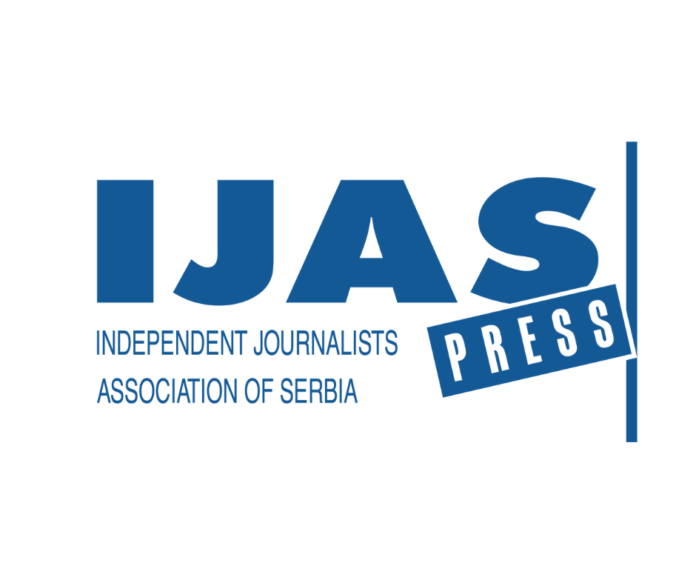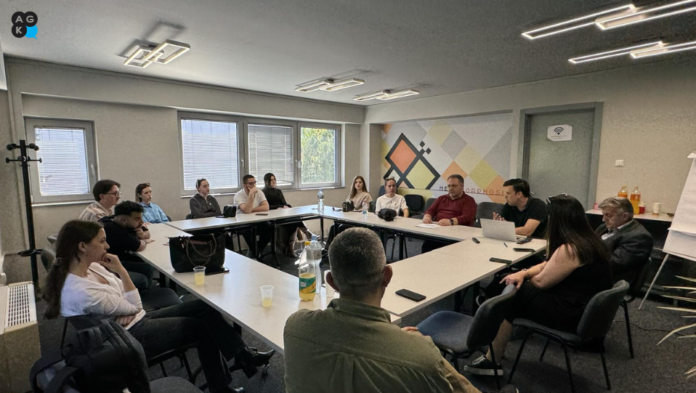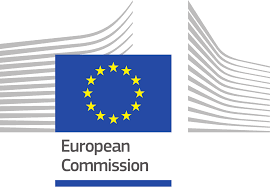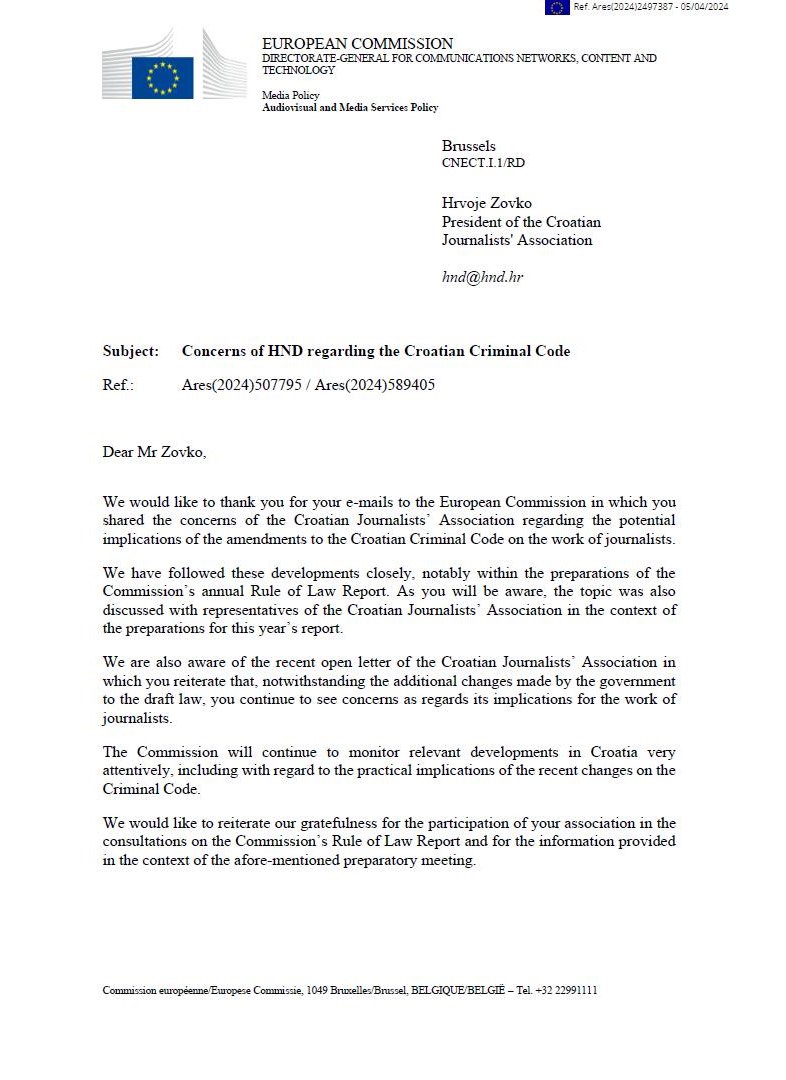Sarajevo, April 22, 2024 – In anticipation of the International Copyright Day (April 23), we spoke with an expert on the protection of copyright and related rights, Haris Hasić. In an interview with BH journalists, he explained the importance of artificial intelligence (AI) for journalists and media workers, and highlighted the benefits and potential limitations that the use of different AI tools in journalism can bring Does the user of the AI service have copyright over what the AI creates?
The user of the artificial intelligence service can be the author of a “prompt”, i.e. a question or query posed by the AI and to which it provides an answer or output. This is provided that the “prompt” can be qualified as an “individual spiritual creation”. In that case, whether the user will have the copyright to the content created by AI on that “prompt” is an open and disputed question in theory, but also in practice. Not enough time has passed for the legislature or the courts to take a position on this issue. In principle, the more “freedom” AI has to make creative decisions, the less likely it is that the user (journalist or other creator of media content) will have copyright on the created output.
What percentage of a journalistic text can contain parts created by artificial intelligence to still be considered an author’s work?
The user is free to take the text he receives from the AI and subsequently refine or rework it. In that case, the user would have the copyright over what he added to the text itself. There are no solid percentages of how much of the original text may or may not remain, since the answer to this question can only be obtained on a case-by-case basis. It is important how much and what the user entered into the existing material. However, a journalist or other author in the media, who takes the AI output and makes his own changes and additions, cannot claim to be the author of the entire content. One of the disadvantages of the fact that AI output is not copyright-legally protected is that any person can use that same output for their own needs, and a journalist or media worker could not object to that use if it refers to what was created by AI. and not to what is added. Of course, the big problem here will be proving it in court proceedings, if it comes to them.
Why should journalists and media workers be careful when using artificial intelligence tools?
Most artificial intelligence tools show a tendency to “hallucinate” or make up facts and make other types of mistakes. To understand this, we must remember that artificial intelligence is not “intelligent” at all. AI is an advanced set of algorithms made using sophisticated statistical correlative models that, “learned” on large amounts of data, can “guess” the order of words that should have symbols or image elements, etc. AI does not understand what it creates, so it can generate false claims or otherwise make mistakes. As an expert and professional person, the journalist bears direct responsibility for all damage that occurs as a result of publishing “hallucinations” or other errors of artificial intelligence. Standard practice must be to verify any fact that is obtained from AI using multiple independent sources. An additional danger arises from the fact that AI can be used to imitate voices and sounds (the popular “Deep fakes”) or generate fictitious photos, etc. All this can make the job of a journalist or media worker significantly more difficult. So, there are many reasons for special attention and caution when using these tools, but also in general for professional journalistic activity in a world where various AI tools exist and are used.
How can journalists be transparent in their use of artificial intelligence tools?
The use of artificial intelligence tools should be clearly indicated, as well as the role of the journalist or media worker in relation to the AI prompt and the subsequent editing of the AI output. As is the case with all disruptive technologies, initially the entire field is unorganized and can be defined as the “wild west”. However, professional rules, good customs and practice will crystallize over time. Until then, as until now, journalists and media workers should have the strictest and highest standards in the use of AI in the creation of their content and be as transparent and honest as possible.
Does artificial intelligence “infringe” copyright?
In order to create a generative artificial intelligence model, such as ChatGPT, it must first be “trained” on a large amount of data. Training data can be, and often are, copyrighted works. In the legal regulations of our BiH, the author has control over all possible ways of using his author’s work except those that the legislator has expressly allowed to other persons, and the author has the right to monetary compensation for each way of using the author’s work, unless the legislator has expressly arranged otherwise. With us, your axiom, and mine, is that training an artificial intelligence model using someone else’s author’s works is something for which the author’s permission must be obtained and the author must be paid a fee! Companies that train AI models disagree with this view. For this reason, the New York Times, the Associated Press, and numerous other news and media outlets sued Open AI, Microsoft, and other companies that train AI. We’ll see what the results of those lawsuits are. But we are already noticing that these companies are increasingly entering into contracts and paying authors for the use of their author’s works for training artificial intelligence models. It is also possible for the user to be sued if the author believes that the specific AI output contains elements of his or her author’s work. AI service providers have created legal defense funds for such cases, because there is not enough practice on this issue even in the world.
Are the author’s works of journalists and media workers from Bosnia and Herzegovina used for training artificial intelligence?
Absolutely sure! I would be very surprised if that is not the case. I think that all the author’s works of journalists and media workers from our country, which are available on the Internet, were used to train the AI model. It must be remembered that these are automated systems that constantly search and mine or “scrape” the Internet to collect/research data. At this moment, it would be extremely expensive, complicated and generally difficult for journalists and media workers from BiH to sue OpenAI or other providers of the most prominent generative artificial intelligence models for violating their copyrights. Such procedures would entail large financial expenditures and the participation of experts and would have to be conducted in the USA. However, something can be done right now to reduce, as much as possible, such mining of author’s works by journalists and media workers from Bosnia and Herzegovina. There are technical measures in place to let the training collection mechanisms know that you don’t want your pieces to be used. Whether it is through “robot.txt” instructions on websites or through explicit indications that you prohibit the use of training content in both human and machine readable form.
What is the current legal arrangement of artificial intelligence in the context of copyright in Bosnia and Herzegovina?
The legal rules governing copyright and related rights in our country are written in such a way that they are technologically neutral, so they can be applied to new and unforeseen technologies such as artificial intelligence. At this time and at this stage of artificial intelligence development, our rules are satisfactory. As artificial intelligence technology matures, theoretical and practical understanding will certainly develop, and a consensus will be reached on how this technology should be regulated. When that moment comes, as was the case with other technologies, the relevant legislation will probably be adopted in the EU or in more developed countries, which we will transpose. Until then, professional workers who depend on copyright and who professionally use artificial intelligence tools should try to anticipate and arrange disputed issues autonomously. The European Union is currently in the final stages of adopting a comprehensive set of rules known as the EU AI Act. This is the first legislation of its kind in the world and represents a kind of test for the development of legal regulation in the field of AI. Among other things, the EU proposes that in the training and use of AI tools they must protect and respect copyright.
Why is it important that there is better legal regulation regarding artificial intelligence and what can the Association of BH Journalists do in this area to protect the rights of journalists and the media?
Adequate legal regulation of the technology is absolutely crucial. On the one hand, excessive legal regulation can delay or hinder the development of technology. On the other hand, inadequate regulation may allow the creators of AI models to gain a competitive advantage and wealth to the detriment and detriment of the interests of authors related to the works they use to train this technology. In this context, BiH as a country should be very careful and not allow the adoption of rules that would excessively benefit AI service providers to the detriment of authors from BiH. This was the case with the proposal that we could see in the draft amendments to the law regulating copyright in our country. Namely, it was proposed to allow the free use of author’s works in BiH, among other things, for training AI models. The Association of BH Journalists submitted amendments to this proposal, providing a detailed explanation of why such a thing would be against the interests of journalists and media workers from BiH, and against the obligations of BiH that it undertook in international conventions in this field. That is why it is important that BH journalists continue to persist in protecting the author’s works of journalists and the media, and do not allow the adoption of the Law in the form it was proposed. As an advocate and promoter of the interests of journalists and media workers in our country, the Association can work with the legislator and the industry in developing standards and good practices and customs in the use of AI and ensure that the legal problems of using AI technology are handled in a more appropriate way. Training AI models and providing these services is very expensive, and it is an important area of activity for very rich companies. Someone with so many resources is adept at lobbying legislators. Therefore, journalists and media workers in Bosnia and Herzegovina, and generally all authors, need someone who will “whisper in the other ear” of the legislator what the rights of journalists and the media as authors are, that is, who will advocate for the legislation to be appropriate to protect the rights and interests of authors in journalism.
PHOTO: Canva/Private archive


